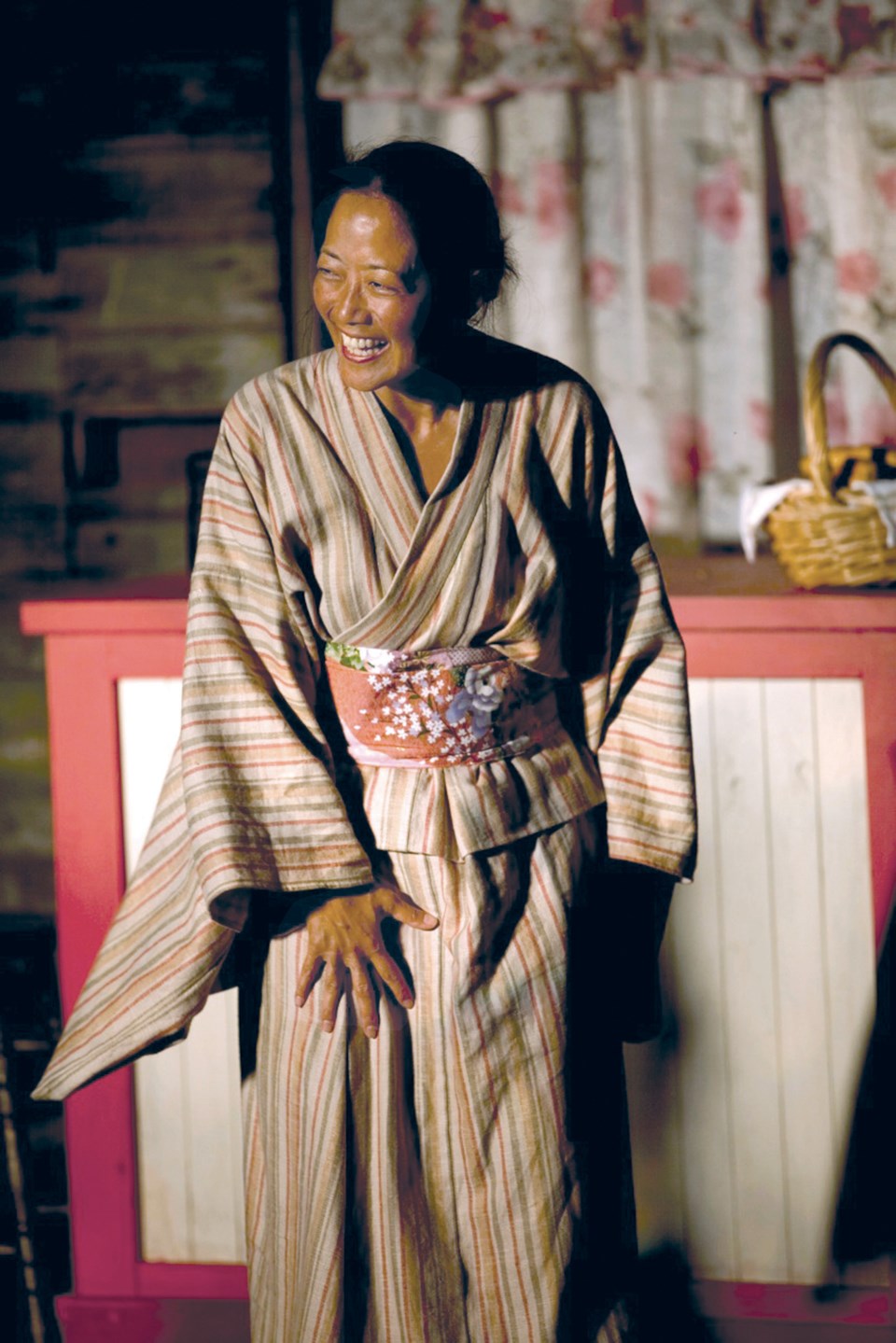Salmon Row, runs until Sept. 1 at Britannia Heritage Shipyard. Visit mortalcoil.bc.ca for schedule and ticket information.
The Canadian government put her father in an internment camp.
It was after Pearl Harbor, and after Japan’s attack on Hong Kong killed 2,000 Canadian soldiers.
Japanese Canadians were stripped of their meagre rights. Approximately 1,200 fishing boats were impounded. Other items were taken by the government and put up for auction.
About 70 years later, that father returned to Steveston to see his daughter, Donna Yamamoto, perform in Salmon Row.
Staged on the Britannia Shipyards, the production features music and stories chronicling the diverse group of Canadians who sustained themselves at the mouth of the Fraser River.
For Donna Yamamoto, it’s a story that reaches across generations by giving the past a pulse.
“There’s a short little scene where our boat is taken away and I have to talk to the audience right afterwards about the internment, and I just think about what my parents must have gone through and I always get a lump in my throat. It’s a real, honest lump because I think this is not just a play, it’s history,” she says.
Yamamoto is a successful actress and businesswoman. Her sister Naomi serves as MLA for North Vancouver-Lonsdale.
The family’s fortunes have changed considerably since the 1940s.
“My family, my parents were interned during that war,” she says.
Her grandfather had been on the verge of paying off his boat before he was interned, Yamamoto recounts.
“It just felt like revisiting a story that I had dealt with before,” says the Windsor secondary graduate, speaking just a few hours prior to a preview performance.
What makes this production distinct is not only the music and characters but the setting, which puts cast and audience right on the water in Steveston.
After playing to capacity crowds in 2011, the City of Richmond spent $100,000 to bring the show back to Britannia Beach.
“It brought me back to a time. I thought about my family, what it was like to live in Steveston,” she says. “It was great to do a piece that had social significance.”
Part of the play’s resonance rests in its examination of the relationships between Chinese and Japanese Canadians, as well as
First Nations.
“There was some tension but also there was some collaboration and there was some respect. It’s just not about our story, the Japanese Canadians, it’s about the whole community in Steveston,” Yamamoto says.
In some households, the play may be the catalyst for a conversation that has never truly been communicated.
“My father and that generation, they don’t talk much about the internment. Part of it is because they use a term called ‘shikata ga nai.’ It’s a Japanese term meaning it can’t be helped, you just move forward. And so they just moved forward.”
Her father, now 86, was put in Lemon Creek in the Slocan Valley.
“My father, I think, is very proud to see a show that talks about his history,” Yamamoto says.
However, her father’s experience was vastly different from the experience of Yamamoto’s grandmother.
“For his age, it was a bit of an adventure,” she explains. “For my grandmother it must’ve been horrible, leaving everything and coming back to nothing.”
Yamamoto’s character is loosely based on Asayo Murakami, a Japanese picture bride who broke her marriage contract and supported herself by working in a cannery.
The character also evoked memories of Yamamoto’s relatives.
“There’s so many of my aunties and my mom and my grandmother that are in this one character because they had to be strong.”
Penned by Nicola Harwood, Salmon Row has been condensed into its current 90-minute form.
“When you see it, it’s just snippets of a really rich, longer story,” Yamamoto says. “Nicola Harwood did a fantastic job of just getting to the heart of things.”
Salmon Row’s three stories were ultimately melded into a single play.
Having biked across wide swaths of the Kootenays, Yamamoto found it hard to find signs of the time when citizenship papers were rendered worthless for thousands of Japanese Canadians living in British Columbia.
“That history and the story are going to be lost unless we tell it to the next generation,” Yamamoto says. “Some of my aunties and uncles mentioned last time: ‘This is the way it was.’ I could see it in their eyes.”



